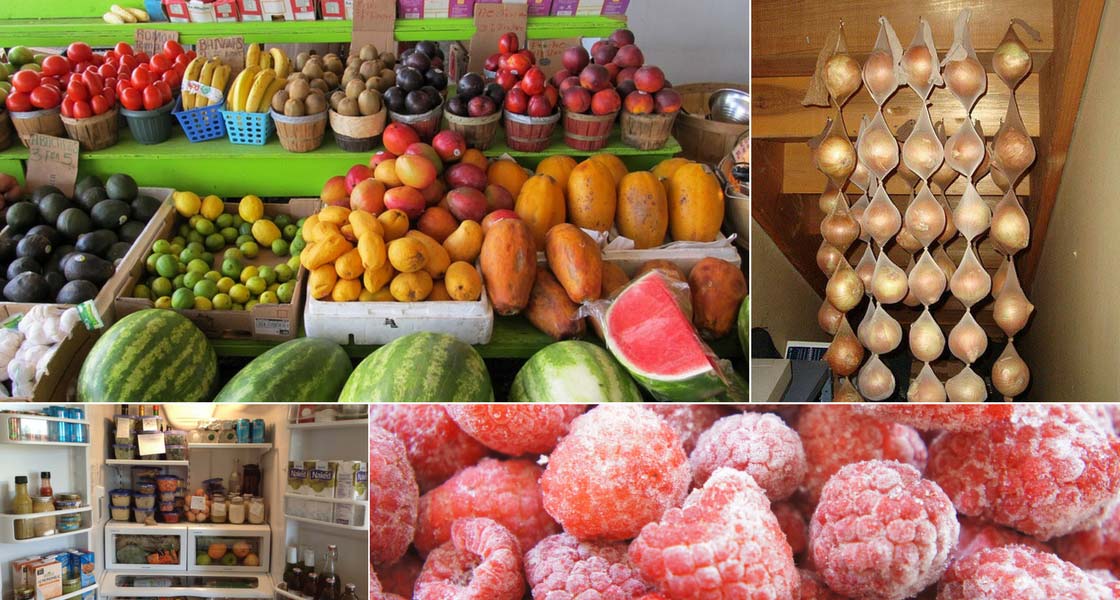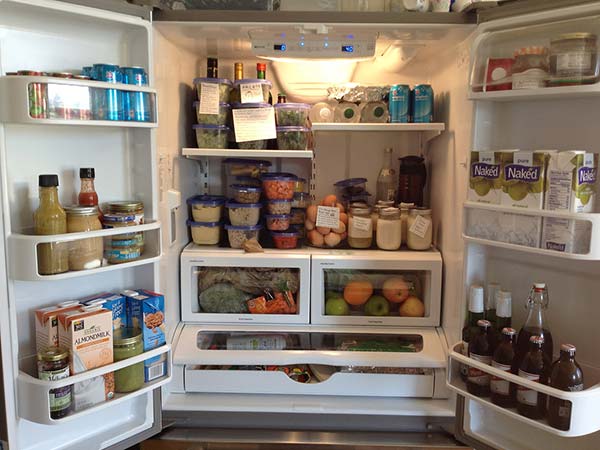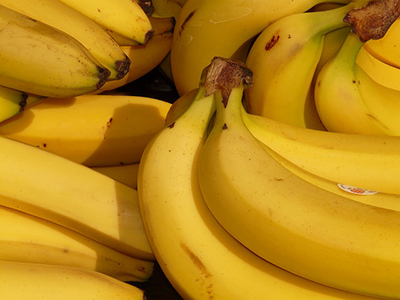20 Ways To Keep Your Fruits and Veggies Fresh For Longer

Groceries, especially fresh fruits and vegetables, can run a family hundreds of dollars each month. The last thing you want to do, after spending all that money, is throw that produce in the trash because the tomatoes are rotten and the garlic has sprouted. Making your groceries last is really important, but Americans typically throw away roughly 14% of the food they take home from the grocery store. Much of this waste can be prevented with a little care and proper storage. Save your money by learning how to effectively extend the shelf life of your fresh fruits and vegetables.
Some of the fresh produce disposed of is actually salvageable. Before tossing out the cheese, consider just removing that single spot of mold. The rest of the cheese is safe to eat. And if a piece of fruit is bruised, just eat around the bruise. The rest of the pear or apple is probably fine, so why waste it? This will save you a lot of money in the long run.
BASIC STORAGE TIPS
- Do not wash fresh fruits and vegetables before storing them. Wash them when you are ready to use them. Extra moisture on them can cause molding. Not washing them can add several days to their shelf life.
- Keep your refrigerator cold and not overpacked. It should be set to 40 degrees or lower. And an overfull fridge inhibits air flow which may lead to food spoiling faster.
- To dramatically extend shelf life, consider freezing fruits and vegetables. Most will keep better and be easier to use in the future if they are chopped and sealed tightly before freezing. Freezing will also help to retain vitamins and nutrients.
- Separate fruits and veggies from food packed in cans and boxes. These inorganic containers can leak chemicals and contaminate your produce.
- Remove the air from bags and containers before storing vegetables. This simple step can double shelf life.
- Remove the ties and rubber bands holding your veggies together before storing.
- You can extend shelf life by cooking vegetables before storing them. When you are ready to use them, simply pull them out and incorporate them into whatever you are cooking.
Now that you have some basic produce storage know-how, let’s look at how to store specific fruits and vegetables to extend shelf life.
FRUITS
- Bananas
Keep bananas on the counter, away from other fruits and vegetables. Bananas produce a lot of ethylene gas which contributes to the spoiling of other fresh produce. If your bananas are beginning to brown, you can preserve their freshness by storing them in the fridge. Wrap the crown of the entire bunch of bananas with plastic to keep them fresh nearly a week longer than normal.
- Apples and Pears
Like bananas, apples and pears produce large amounts of ethylene gas. Keep them separated from other fruits and vegetables to prevent spoilage. Store apples on the counter. They should last for about a week.

- Cherries
Refrigerate cherries, unwashed. They will stay good for roughly 1 week.
- Peaches
Store peaches on the counter, out of direct sunlight. You can extend their shelf life by keeping them a paper bag with holes in it.
- Berries
Keep berries in the container they come in. Store them in the fridge, unwashed. Blueberries have the longest shelf life, roughly 1 week. Strawberries usually last for about 3 days. Raspberries will usually begin to mold after only 2 days.

- Citrus
Most citrus will last 2-3 weeks if refrigerated. If unrefrigerated, they will usually stay fresh for about 1 week.
- Melons
If left uncut on the counter, most melons will stay good for 4-5 days. Once cut and stored in the fridge, melons stay good for up to 4 days.
VEGETABLES
- Tomatoes
The best way to store tomatoes is on the counter, not touching. Storing in the fridge will degrade their flavor and consistency.
- Asparagus
Think of asparagus as cut flowers and store them appropriately. Wrap a damp towel around the ends or stand them upright in a container of shallow water. Cut the stems before placing them in about 1 inch of water. You can also cover them with plastic. These methods should keep asparagus fresh for about 1 week.
- Onions
Most people know to store onions somewhere cool, dark, and dry. If you don’t have a bin or drawer for them, try placing them inside a mesh bag or stocking. Too hot and onions will sprout. Too cold and they will rot. Onions should be kept apart from other produce because of their strong smell. They can be peeled, chopped, and stored in a container in the fridge for 5-7 days.

- Avocadoes
If stored uncut in the fridge, avocadoes can last 3-4 weeks before spoiling. Once cut, they brown almost immediately unless stored with the pit. The pit releases natural oils that help to preserve the avocado and prevent it from turning brown. Another trick is to spray a cut avocado, or guacamole, with cooking oil. The oil serves the same purpose as the pit.
- Potatoes
Like onions, potatoes keep best when kept somewhere cool and dry. Though they require similar storage conditions, potatoes and onions should never be stored together. This will make the potatoes rot quickly. There are several tricks to keep potatoes from rotting or sprouting such as laying them on newspaper or storing an apple with the potatoes. The apple helps prevent the potatoes from sprouting. It doesn’t matter what kind of apple. Just replace the apple with a fresh one when you buy new potatoes.
- Garlic
Fresh garlic bulbs should be stored at room temperature, away from heat and direct light. If stored properly, they can stay good for months. You can also peel and dice them to have ready to use. Store them in an airtight container in the fridge for up to 1 week. If you want ready-to-use, diced garlic that will keep for a long time, you can coat the garlic in olive oil and store it in the fridge.
 Home and Gardening Ideas At home and Gardening ideas we believe inspiring readers about homesteading, self sufficiency
Home and Gardening Ideas At home and Gardening ideas we believe inspiring readers about homesteading, self sufficiency







One comment
Pingback: 20 Ways To Make Your Fruits And Veggies Last Longer